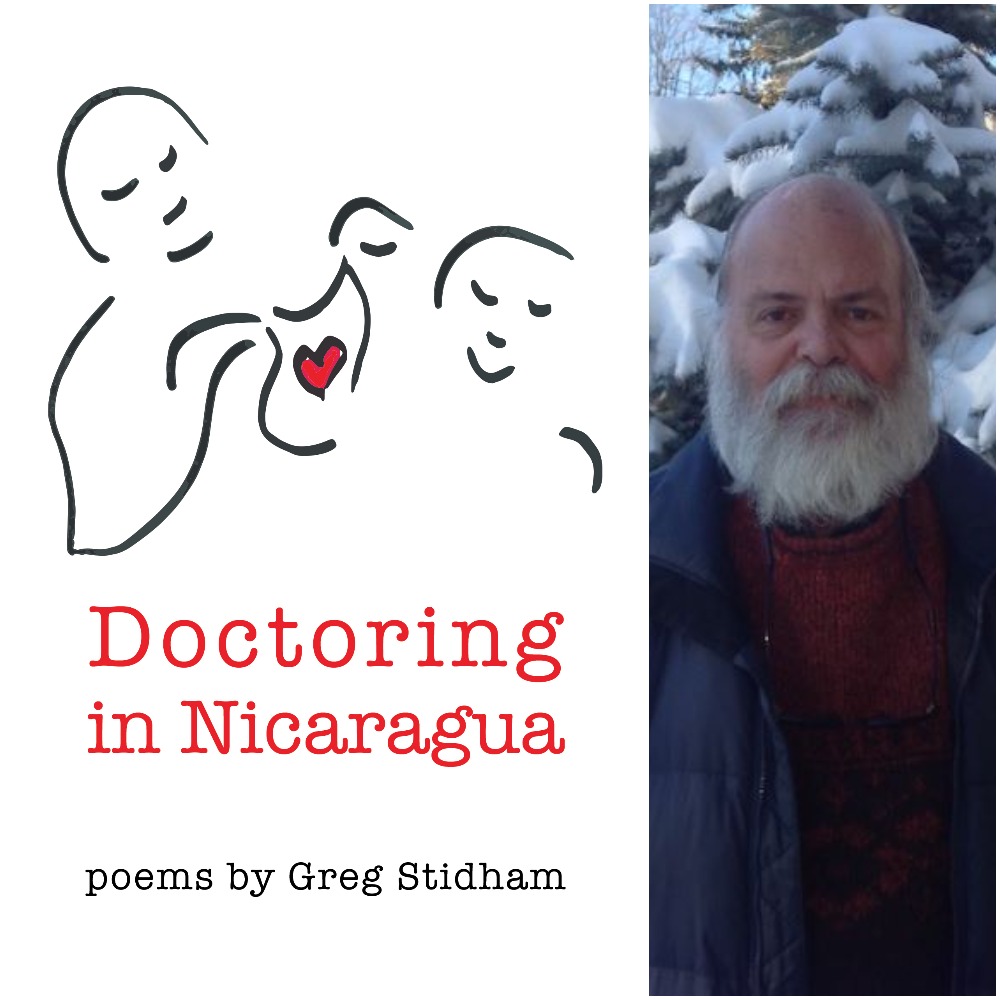Greg Stidham’s Doctoring in Nicaragua is a very moving collection of poems garnered through his lifetime of pediatric critical care. Added to that, his experiences with aging parents and even now his own personal walk along that path. These, his beautiful poems, were in their creation a way in which he might ‘make sense’, for both the reader and himself, of his journey of working through and processing those immense realms of grieve, of passing, of hope, of sometimes even jubilation – this thing called ‘life’.
–Bruce Kauffman, https://leagueofcanadianpoets.wildapricot.org/widget/Sys/PublicProfile/52254232/4543948
“Greg Stidham‘s poetry is astounding and unique. Not since John Stone or William Carlos Williams have I witnessed a writer blend their professional past of practicing medicine with evocative, emotionally intelligent, and resonant power that good poets infuse in their work. Not all of Stidham’s poems focus on his expertise in medicine and the emotions a doctor feels when he prevails or simply cannot succeed for circumstances beyond his control, but those that do (and those that don’t!) build a bridge of empathy to the reader, such that a wide array of people from unnumbered backgrounds are granted entrance to his poems without fear of a voice too technical, cerebral, myopic. Indeed, that is Stidham’s greatest strength as writer: his accessible poems are predominately elegiac; but, as with great elegies, his poems celebrate moments in waking life in which one ponders the miraculous improbability that we live and perceive. Doctoring in Nicaragua is a chapbook that I will return to repeatedly for its profound knowledge and, most importantly, wisdom”
–William Wright, https://www.goodreads.com/author/show/8126182.William_Wright
With this first collection of poems, Doctoring in Nicaragua, Greg Stidham has added an iron-strong new link in the chain of doctor-poets, or poet-doctors. Like William Carlos Williams, his most famous predecessor in that lineage, Stidham’s poems come fully to life through their images. I will never forget the scene of the father cutting the strand of his dying son’s hair in the “The Lock.” I admire these poems not just for the heroic acts of care and courage they portray, sometimes against hopeless odds, but also for their unadorned way of sharing these experiences. I found myself thinking about the people I met in these poems long after reading about them, the medical resident on the early train writing his poems, the boy popping wheelies in his wheelchair, and all the children whose lives were saved and those whose could not be saved by a doctor with a poet’s heart.
–Jesse Graves, Author of Merciful Days and Tennessee Landscape with Blighted Pine






Reviews
There are no reviews yet.